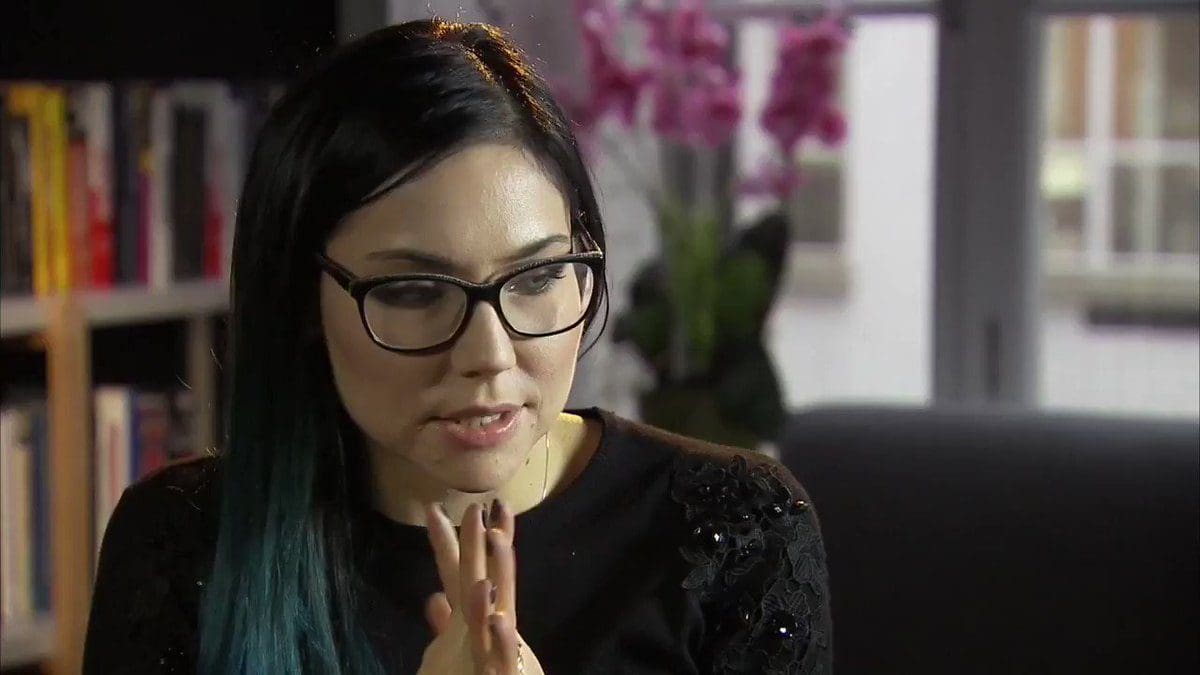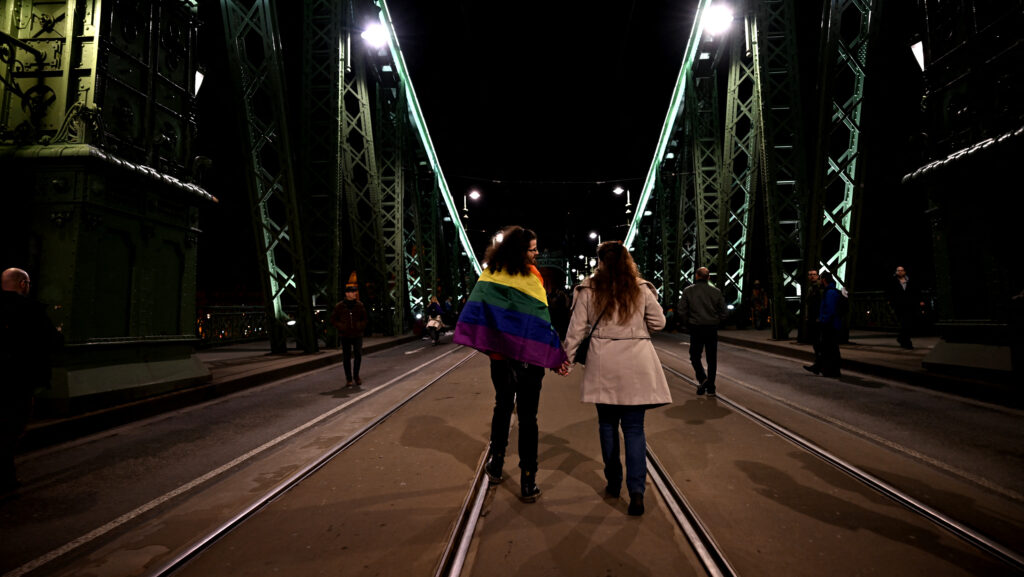Educating the next generations is clearly of enormous importance in every society. But how that should be done has become a hotly debated issue in the West, including Europe. In our interview recorded at the MCC Feszt this past July, Dr Ashley Frawley, an associate professor at Swansea University and a visiting research fellow at MCC Brussels, shared her views on the significance of parental decision-making, education-related policymaking, and how families have become seen as the problem.
***
In your work, you have been focusing on policies related to individuals and families. Why is education in that context so important?
Education is famously an area of enormous political contestation. And education becomes more important as those in power lose their confidence to persuade adults of their policies. They start to get very frustrated; and rather than thinking, maybe I should understand why I’m not convincing people, they instead think, ‘well people are just never convinced’. And to create social change, we need to change the values of the people. And since we can’t convince them to change their values,
we need to go into education to inculcate these new values into the next generation.
This happens when policymakers lose faith in their ability to convince the elector that the path they’ve chosen is a good one. And instead of engaging in some soul–searching, they blame the people. So education becomes this battleground. That’s just one reason. Education becomes this battleground also because when you are searching for solutions to social problems, social problems that seem very resistant to solutions, then education comes up as a way of solving these ‘problems’. ‘Well, we have to prevent them before they start,’ they say, and we could prevent them if we went into education and we taught them the right values, right? So values become really powerful also in that context, you have to change the way people behave, the way that they think, the way that they feel. And you do that supposedly in education.
The United Nations Convention on the Rights of the Child emphasises that the best interests of the child must be a primary consideration in all actions concerning children. How should we interpret the concept of ‘best interest of the child’ in education?
The best interests of children are not served by turning education into this battleground over values and this instrumental way of solving problems in society. Because as you do that, what was traditionally understood as the purpose of education, gets crowded up. And it becomes less about inculcating or teaching young people about what the best that human beings have thought or written or done: the things that as a society we have deemed worthy of being passed down to the next generation. Instead, it becomes about all of different projects. And so education ends up spending more and more time on all these little pet projects as opposed to actually passing on knowledge to the next generation.
So what’s in the best interest of children is passing on what the best that human beings have thought, written, said and done. And people get really worried about that. Like that’s some kind of indoctrination or something. But social change happens in lots of different ways. And as members of a generation encounter the knowledge and the deeds of the one that came before it, they just imbibe it all. They think about it, they reflect. And social change can happen in that way, too.
What is the importance of parental decision-making? Is it crucial to preserve certain decision-making rights for parents?
I think this is really important because education is what sociologists call secondary socialisation. And the socialisation that happens in the family is primary socialisation.
And you create horrific problems by trying to intervene and disrupt that flow.
Again, people get very uncomfortable about allowing parents to have autonomy in the family. Like, oh, they’ll indoctrinate their children in religion and so forth. Well, then you’re kind of stuck for explaining social change, because you didn’t always have these bureaucrats coming in and telling people how to raise their children, and yet we do have enormous social change throughout history in spite of the primary socialisation in the family where we learn how to function as human being. So what happens is that the family, just like education, became this battleground. The family becomes a battleground because, again, in search for solutions to social problems, those in power get frustrated. And instead of thinking maybe I’ve not understood this problem, they think what are you doing wrong? How can I change your behaviour? Why would you not behave the ways my model says you should? They’re very frustrated. And so they look to education when they get frustrated with not being able to control families.
But if the focal point is education, how does the issue of parental autonomy and parental policy come into play?
Those in power look to families because they see that also as a key place in which they can inculcate the so–called correct values, values leading to the so-called correct behaviours and so on, creating what they think is an ideal citizen. And so they think of a lot of social problems as a rising out of a broken process of socialisation between the generations. So for instance, the European Union sees poverty, partially at least, as something that is passed down in families. And so in order to disrupt cycles of poverty, they want to
disrupt some kind of broken socialisation process that is happening in the supposedly problem families.
And so the family becomes this site in which you need to instil the correct parenting methods as though humanity suddenly discovered the correct way of raising children, which apparently happens in the United States.
What do you mean by that?
Middle-class white Americans apparently have ‘the very best way’ of raising children. We have to spread that to the whole world, never mind millennia of humans bumbling along and figuring it out for themselves. No, no, no. There’s a correct way of doing it. And so that policy becomes about parenting policy, teaching the correct things about parenting and then you get this enormous explosion of literature on human rights and the rights of the child, which are increasingly set against the rights of parents and the rights of family life and the privacy of family life. That becomes a problem and an impediment. The privacy of the family becomes an impediment to the so-called rights of the child.
Why and how does that happen exactly?
This happens because policymakers individualise everybody in the family. And they lose the sense of the family as a relational unit whose relationships, whose cohesiveness, represent an important aspect of society as a whole. That’s just gone. It’s all the individuals within that family with their own rights and interests that conflict with each other. So the children’s rights come to be set up against the right to the parents to have a cohesive family and to socialise their children, and as I said, when you disrupt that, you cause all kinds of problems. And it’s funny because on the one hand, people will talk very easily about the need to disrupt this transmission of culture when it comes to the countries within the European Union. But when it comes to indigenous people in Canada, which I’m one of, the disruption of cultural transmission is supposedly the source of all kinds of social problems, while they’re totally comfortable with talking in these very negative terms about culture and tradition when it comes to Europe. And then they’ll go to native people like ‘ah, it’s so sad that you’ve lost your culture’.
But of course, the reason why they are able to do this is because then
they will sell back to indigenous people the so-called cultural values that are actually just mainstream policy initiatives
with some turtles on it and a medicine wheel and a dream catcher, and they’re like, here you go, here are your cultural values. And so the disruption, which they lament constantly, becomes an opportunity for them to come in and give the people the so-called correct values.
To sum up, autonomy becomes a problem within the education system, within the family, when values and cultural values are seen to be the source of most social problems.
And what is your opinion about sex education? Classical sex education in schools typically includes information about reproductive anatomy and responsible sexual behavior. Do you believe it should also incorporate information on LGBTQ+ sexuality, or are these two completely separate topics? Should parents have the right to receive information prior to events in schools that expose their chilren to LGBTQ+ education?
I think all sex education is notoriously a hot-button issue. Never mind the LGBT stuff: even before that became an issue, whether or not to teach sex education and how, was always a contentious area of debate. And while I think it is important that young people learn especially about anatomy and so on, I think that should be in biology classes. It’s just part of learning about humanity and so on. I do recognise that parents should have a say over teaching really sensitive kinds of issues, issues that can create conflicts within their own sort of belief systems. Whether or not I agree with what they think should be taught and shouldn’t be taught is a different issue.
But when it comes to the LGBT thing, one of the most enormous mistakes and missteps I think was that
they purposely evaded public debate about their values and about their belief system
and just said ‘this is the way things are’. They thought we can’t really deal with the public because the public is backward, they’ll never be convinced. And so they sought these sorts of underhanded means of changing policy. And this was very effective. When they packaged things like easier gender transition into legislation that seemed on the outside very uncontroversial in many countries, like gay marriage, they were very successful in getting what they wanted. In fact, in many countries policy was in place without any public debate before the public even became aware of it.
How was that even possible?
Nobody really knew what was going on. And in fact, feminist groups expressed shock when they realised what had happened because it seemed to have come out of nowhere. All of a sudden, they were being shut down for talking about things that they had always talked about. Once you get something in policy it’s very hard to go back on that. They knew that and they went straight for the law. And they were most successful in areas where they had evaded debate. In the United Kingdom, they were almost very successful. But they accidentally sort of aroused media scrutiny. And in many countries they did this and how they aroused media scrutiny and public debate was by targeting the education system. Because as I said before, sex education has always been controversial. It’s a famous example of what sociologists call a position issue.
What is a position issue?
It is when the sides just can’t agree. There’s no bargaining, there’s no consensus, there’s great and deep disagreement. But sex education is also something that’s very difficult to teach and is awkward. In many education systems, the teachers felt very awkward about delivering what had become a required curriculum. And so they were receptive to these LGBT lobby groups who came in with these prepackaged education programmes. These groups intentionally went into education to change the values of the next generation and affect change and avoided public scrutiny. But this was a major misstep, because a lot of people and a lot of groups in society came across this agenda only when their children brought it home to them in the evening. And so this aroused an enormous amount of scrutiny and debate, the exact opposite of what they were going for. So this was a humongous misstep. The problem was that through education, you were already trying to change values in ways that parents were not very comfortable with. And now on top of that, you’re introducing a whole new ideology of gender. Sexuality? Fine, most people have a sense of what sexuality is. Most people didn’t have a sense of what the hell gender was. They didn’t have a sense of an inner self that was composed of gendered norms. And so this was a lot more controversial.
How should schools and parents cooperate, then?
I think that in general people can smell it when they are being thought of as the problem. And generally people don’t like to be considered problems that need administering to. They like to be thought of as autonomous individuals. And so, when there are so many initiatives that see the family as the problem and seek to get around that by getting into education in order to inculcate value change, this creates even more of a rift between parents and schools. And people need to grow up and understand that the problems of society are deeper into society than how people raise their children and the words that they use and the ideologies that govern their lives.
We need to rethink the way we understand social problems and stop problematising families.
If schools have that outlook on the family, you’re always going to have this rift, this conflict that develops. Instead, schools and families need to try to understand that we are all engaged in the project of socialising the next generation. And there has to be some bargaining and some consensus and some understanding. There are lots of values at play. This is the price we pay for a pluralistic society. We’ve got to bargain, we’ve got to reach consensus, we’ve got to talk to each other and stop vilifying the other side. I think, in that way, we can socialise our children into a society that has lots of different values and in which they are free to make choices even if sometimes they might be the wrong ones.








